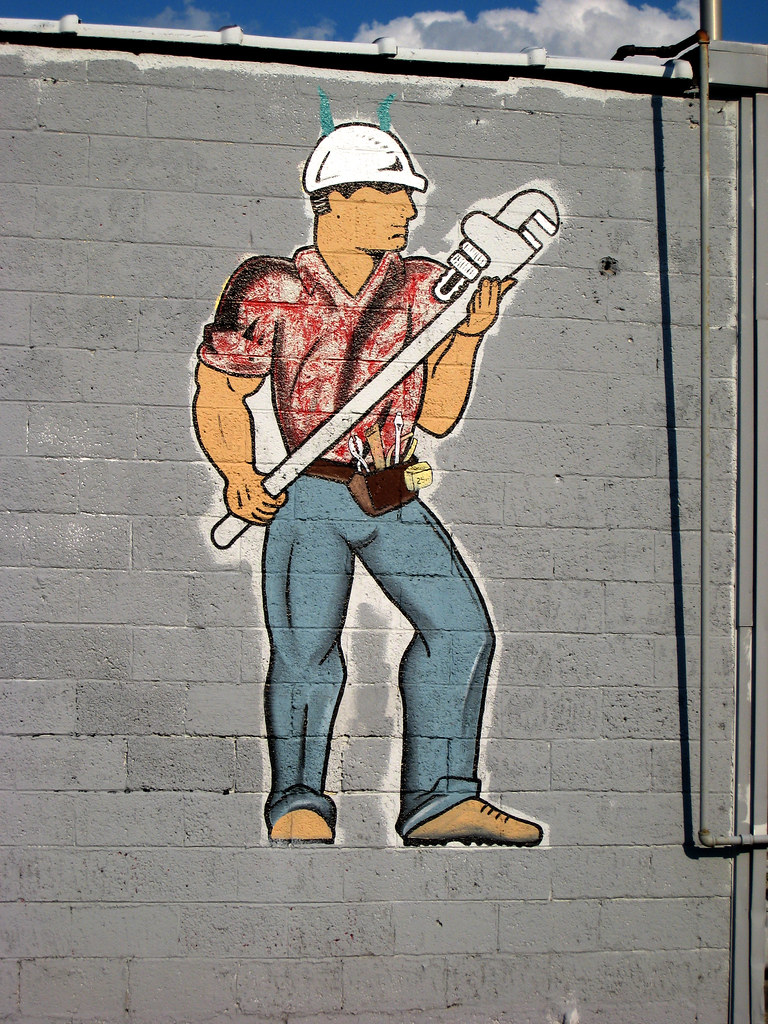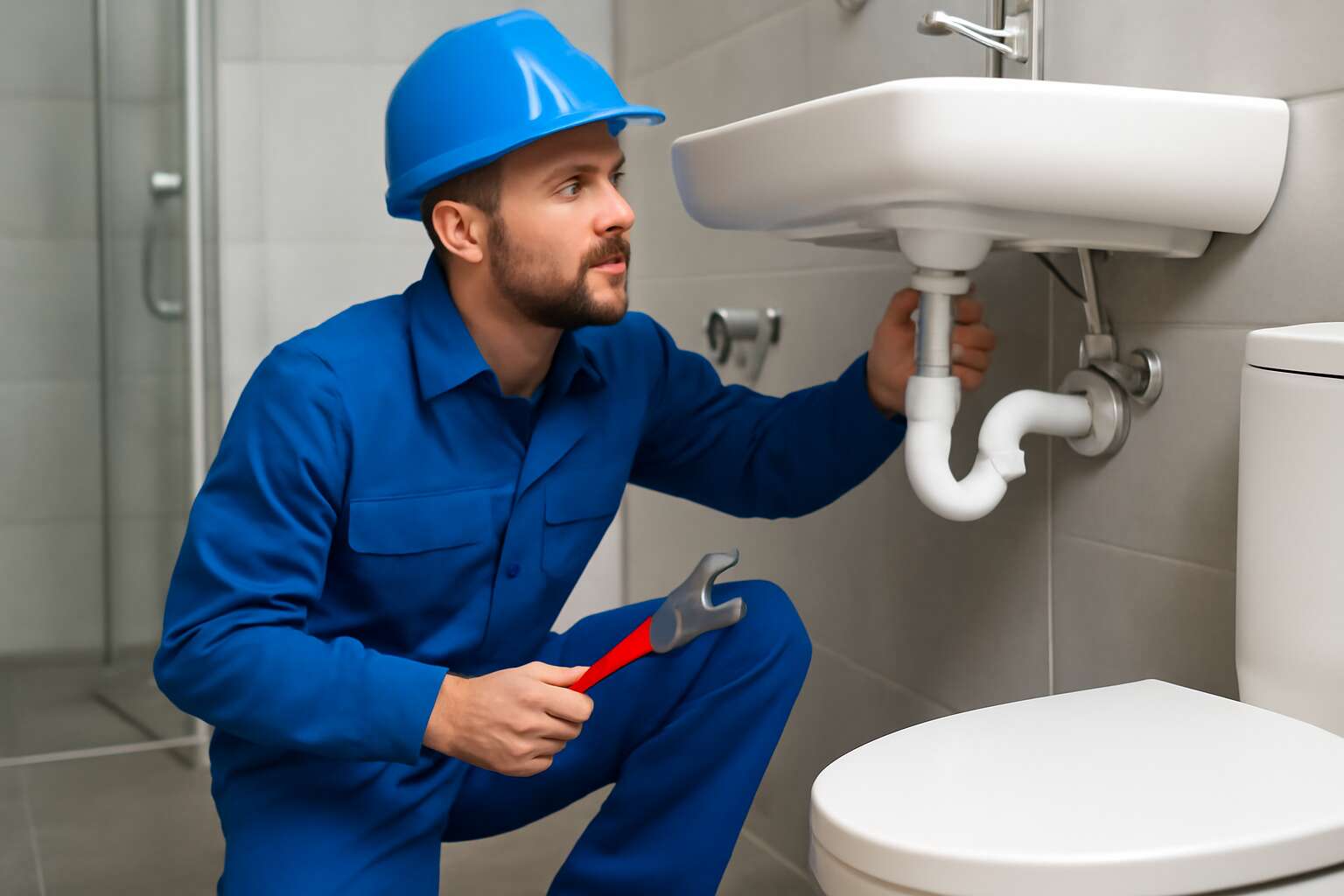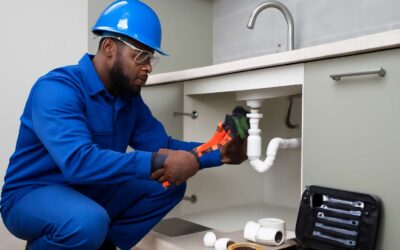Overview of Plumbing Profession in Canada
The Role and Responsibilities of a Plumber
The plumbing profession in Canada plays a vital role in maintaining public health and safety. Every year, thousands of plumbers ensure that homes, businesses, and public facilities function smoothly. Their work often involves complex problem-solving, from fixing leaks to installing advanced piping systems. It’s a skilled trade that requires both technical knowledge and physical precision.
Plumbers in Canada are responsible for a variety of tasks, including installing, repairing, and maintaining plumbing fixtures. They also troubleshoot issues, interpret technical drawings, and ensure compliance with safety regulations. The role demands adaptability, as each project can present unique challenges. For many, this career offers a steady income, and the question arises: how much plumber earn in Canada? The answer varies based on experience, location, and specialization, but it remains a lucrative profession overall.
- Installations of new plumbing systems in residential and commercial buildings
- Emergency repairs to prevent water damage and ensure functional plumbing
- Maintenance work to extend the lifespan of existing infrastructure
Importance of Plumbing Trade in Canadian Infrastructure
Plumbing isn’t just a trade; it’s the backbone of Canadian infrastructure, quietly powering homes, industries, and public services. Behind every functional faucet and reliable sewage system lies a skilled plumber whose work often goes unnoticed—until something goes wrong. The importance of the plumbing trade in Canada cannot be overstated. It ensures safety, sanitation, and efficiency across the nation’s vast landscape, making it a vital component of economic stability.
For those curious about the financial prospects, many wonder: how much plumber earn in Canada? The answer varies dramatically depending on experience, specialization, and location. In bustling urban centers, experienced plumbers can command premium rates, reflecting the high demand for their expertise. Conversely, those just starting out may earn less but have opportunities to grow rapidly. The significance of this profession in Canadian infrastructure underscores its lucrative potential, with many tradespeople enjoying a comfortable, steady income.
In fact, the thriving plumbing industry in Canada is often characterized by a range of opportunities:
- High demand for residential and commercial installations
- Lucrative emergency repair services
- Consistent need for maintenance and upgrades
Average Earnings of Plumbers in Canada
Average Salary by Experience Level
In the vibrant landscape of Canadian trades, plumbing stands out as a profession offering both stability and substantial earning potential. Curious about how much plumber earn in Canada? The answer varies significantly depending on experience, location, and specialization. On average, a novice plumber beginning their career might earn around CAD 50,000 annually, but with skill and years of dedicated work, earnings can soar well beyond CAD 80,000. For seasoned professionals or those who own their own plumbing business, the income can reach impressive heights, sometimes exceeding CAD 100,000 per year.
Understanding the salary progression based on experience level reveals a compelling picture of opportunity. Entry-level plumbers typically start with lower wages, but as they gain expertise, their compensation reflects their growing skills. For instance:
- Junior plumbers earning approximately CAD 50,000 to CAD 60,000
- Mid-level plumbers earning between CAD 65,000 and CAD 80,000
- Experienced or specialized plumbers earning upwards of CAD 90,000 or more
This upward mobility underscores the importance of continuous training and specialization in the plumbing trade—key factors influencing how much plumber earn in Canada and shaping a prosperous career in this essential industry. The earning potential remains robust across provinces, with larger urban centers typically offering higher wages to match the cost of living and demand for skilled tradespeople.
Median Income Figures
In the intricate tapestry of Canadian trades, plumbing stands out as a profession that combines resilience with reward. The median income for plumbers in Canada offers a glimpse into a career that can be both financially fulfilling and personally meaningful. On average, a plumber’s earnings hover around CAD 65,000 annually, reflecting the diverse landscape of wages across provinces and cities.
What makes this figure particularly compelling is its potential for growth. As plumbers develop their skills and specialize, their income can elevate significantly. For instance, seasoned professionals or those who own their own plumbing business might earn upwards of CAD 100,000, transforming their craft into a lucrative venture. This steady increase in earnings underscores the value of experience and continuous professional development in understanding how much plumber earn in Canada.

Across the country, larger urban centers like Toronto, Vancouver, and Calgary tend to offer higher median incomes, aligning wages with the higher cost of living. Whether starting out or reaching the pinnacle of their career, Canadian plumbers find themselves in a profession that not only sustains but also elevates their aspirations—affirming that the journey in this trade is as rewarding as it is vital.
Comparison of Urban and Rural Earnings
In urban centers like Toronto, Vancouver, and Calgary, the average earnings of plumbers tend to be higher than in rural areas. This disparity is driven by the increased demand for plumbing services and the higher cost of living in cities. On average, urban plumbers in Canada earn between CAD 70,000 and CAD 80,000 annually, reflecting the premium placed on skilled trades in bustling metropolitan areas.
Rural plumbers, however, often see lower median wages, typically around CAD 50,000 to CAD 60,000 per year. While this might seem less lucrative, many rural professionals offset the lower wages with lower living costs and the opportunity to be closely connected to their communities. The difference in earnings highlights how location influences the earning potential of plumbers across Canada.
- Urban areas: CAD 70,000 – CAD 80,000
- Rural areas: CAD 50,000 – CAD 60,000
This variation underscores the importance of location when considering how much plumber earn in Canada. Whether in a city or a small town, the trade offers steady income potential with room for growth as skills and experience develop. The right location can make a significant difference in earning outcomes for plumbing professionals across the country.
Factors Influencing Plumber Salaries in Canada
Geographical Location and Cost of Living
When exploring how much plumber earn in Canada, the influence of geographical location cannot be overstated. Urban centers like Toronto and Vancouver often offer higher wages, driven by increased demand and cost of living. Conversely, rural areas tend to provide lower salaries, but sometimes compensate with less competition and a more relaxed work environment. This stark contrast highlights how regional disparities shape earning potential in the plumbing trade.
Cost of living is another crucial factor that affects plumber salaries across Canada. Cities with elevated housing prices and living expenses naturally push wages upward to attract skilled tradespeople. For example, in places where rent and everyday expenses soar, plumbers might earn a premium—sometimes 20-30% higher than their counterparts in more affordable regions. These economic pressures make it vital for aspiring plumbers to consider more than just the base rate when evaluating potential earnings, as local economic conditions significantly impact how much plumber earn in Canada.
Level of Certification and Specializations
One of the most significant factors that influence how much plumber earn in Canada is the level of certification and specialization. Certified plumbers with advanced skills often command higher wages, reflecting their expertise and ability to handle complex systems. Specializations such as gas fitting, sprinkler systems, or eco-friendly plumbing can open doors to lucrative opportunities, boosting earning potential considerably.
In fact, plumbers who pursue additional certifications or specialize in niche areas tend to see their salaries rise sharply, sometimes by 15-25%. This is especially true in urban centers where demand for specialized services is higher. For example, a gas-fitting certification can significantly elevate a plumber’s earning potential, making their services indispensable in regions with strict safety codes or high-end residential developments.
Ultimately, the combination of advanced credentials and specialized knowledge plays a pivotal role in determining how much plumber earn in Canada. Those willing to invest in their skills often find themselves rewarded with not only higher wages but also increased job security and professional respect.
Years of Experience and Skill Level
Experience and skill level are the silent puppeteers pulling the strings of a plumber’s earning potential in Canada. While entry-level plumbers may find themselves at the lower end of the pay scale, seasoned professionals with years of hands-on practice often command a premium salary. This disparity highlights the importance of continuous skill development in the plumbing trade, especially in a country as vast and varied as Canada.
In fact, the earning trajectory can sometimes resemble a rollercoaster—steadily climbing as expertise deepens. For those with extensive experience, the question of how much plumber earn in Canada becomes less about numbers and more about strategic positioning in the job market.
To illustrate, a plumber with five or more years of experience might see their wages increase by as much as 30%, especially if they possess advanced skills in areas like commercial plumbing or emergency repairs. The more diverse and refined the skill set, the higher the earning potential—proof that mastery isn’t just about pride but also about profit.
Type of Employment: Union vs Non-union
One of the most significant factors influencing how much plumber earn in Canada is their type of employment—specifically, whether they work within a union or as a non-union worker. Unionized plumbers often enjoy higher wages, better benefits, and more job security, which can make a substantial difference in their earning potential. The strength of a union can also influence wage negotiations, leading to more consistent pay raises over time.
Non-union plumbers, on the other hand, typically have more flexibility but may face greater variability in their income. Some non-union workers supplement their earnings with overtime or side jobs, which can boost their overall income. In regions where union presence is strong, such as parts of Ontario or British Columbia, union plumbers tend to command a premium, making their earning potential more predictable and often higher than their non-union counterparts.
Salary Trends and Future Outlook
Current Market Trends
In the ever-evolving landscape of Canadian trades, the earning potential of plumbers continues to reflect promising growth. Currently, the market exhibits a buoyant trend, driven by surging infrastructure projects and a persistent demand for skilled tradespeople. As the country’s urban centers expand and rural communities modernize, the question of how much plumber earn in Canada becomes increasingly relevant for aspiring professionals and seasoned veterans alike.
Future outlooks suggest a steady increase in salary levels, fueled by a shortage of qualified plumbers and the necessity for specialized skills. According to recent industry analyses, those with advanced certifications or niche expertise are commanding premium wages. Not only do these trends underscore a resilient market, but they also hint at a lucrative career pathway that can adapt to technological innovations and evolving building standards.
- Growing infrastructure investments
- Skill shortages boosting wages
- Increasing demand for specialized plumbing services
All these factors contribute to an optimistic forecast for how much plumber earn in Canada, positioning the trade as both a stable and rewarding profession for those willing to master its craft.
Predicted Growth in Plumbing Sector
In the dynamic world of Canadian trades, the question of how much plumber earn in Canada isn’t just idle curiosity—it’s a reflection of a resilient, evolving industry. Recent data reveals that the average plumber’s salary has seen a steady uptick, thanks to robust infrastructure projects and an acute skill shortage driving wages higher. It’s a promising sign for those contemplating a plunge into the trade or seasoned veterans considering their next move.
Looking ahead, the future of plumbing in Canada appears even brighter. Industry forecasts predict a sustained growth trajectory, bolstered by increasing investments in infrastructure and a persistent demand for specialized plumbing services. This surge has created a competitive landscape where skilled plumbers with niche expertise and advanced certifications often command premium wages. In fact, those with specific expertise in green plumbing solutions or high-tech systems are setting the pace for the highest earnings in the sector.
- Continued infrastructure expansion
- Persistent skill shortages
- Growing demand for specialized plumbing services
All these factors combine to suggest that the earning potential of plumbers in Canada is poised to climb even further. So, if you’re wondering how much plumber earn in Canada, the answer is: it’s a lucrative career with a promising horizon—especially for those willing to hone their craft and embrace the future of plumbing innovation. It’s not just a job; it’s a pathway to financial stability in a market that values expertise and adaptability.
Impact of Skilled Trades Shortage
In the shadowed corridors of Canada’s thriving trades, a whisper persists—plumbers are carving out a fortune amidst the rising tides of infrastructure and innovation. The question of how much plumber earn in Canada isn’t just a matter of currency; it’s a reflection of a sector pulsating with life and potential. Recent salary trends reveal an upward trajectory, driven by a persistent skilled trades shortage that leaves demand echoing through every urban alley and rural outcrop.
The future of plumbing in Canada glimmers with promise, as forecasts anticipate sustained growth fueled by investments in both traditional and green infrastructure. The scarcity of skilled tradespeople has become a catalyst, elevating wages and creating a landscape where expertise commands a premium. Those who specialize in high-tech systems or eco-friendly plumbing solutions are poised to reach the pinnacle of earning potential, their skills in high demand and well rewarded.
- The persistent skilled trades shortage
- Growing demand for specialized plumbing services
- Continued infrastructure expansion
In this evolving tableau, the earnings of plumbers in Canada are set to ascend even further, transforming what might seem a humble trade into a lucrative pursuit. For those who dare to delve into the depths of their craft, the path reveals a horizon where financial stability and professional fulfillment intertwine like the roots of an ancient tree—steadfast and enduring.
Additional Compensation and Benefits
Overtime and Emergency Pay
In the intricate dance of compensation, additional perks and benefits often elevate the humble plumber’s earning potential beyond mere base salary figures. Overtime and emergency pay, in particular, serve as vital components that reflect the unpredictable nature of plumbing work, especially in Canada’s harsh climate where repairs can be urgent and unplanned. Such supplementary income can significantly boost overall earnings, offering a cushion during peak seasons or unforeseen crises.
For many plumbers, these forms of compensation are not just perks but essential elements that acknowledge the demanding and often unpredictable schedule they navigate. Overtime rates, often calculated at time-and-a-half or double-time, can meaningfully inflate the total income. Emergency pay, which is typically higher, recognizes the urgency and importance of immediate response, ensuring that skilled tradespeople are rewarded for their readiness and resilience. When considering how much plumber earn in Canada, these additional earning avenues are crucial, painting a more comprehensive picture of the profession’s lucrative potential.
Bonuses and Incentives
Beyond their standard paychecks, plumbers in Canada often enjoy a variety of bonuses and incentives that can turn a decent salary into a lucrative career. These additional compensation perks reward those willing to work beyond the usual nine-to-five grind or endure the chaos of emergency repairs. It’s no secret that when the pipes burst in the dead of winter, plumbers are on call—sometimes earning more in a single week than an average office worker makes in a month.
Many companies sprinkle in performance bonuses, safety incentives, and referral rewards, creating a patchwork of extra income sources. For example, seasoned professionals might receive:
- Completion bonuses for major projects
- Referral incentives for bringing in new talent
- Profit-sharing schemes in union shops
These perks add a dash of unpredictability to the average plumber’s earnings, making the question of how much plumber earn in Canada a bit more colorful than a simple salary figure. The extra compensation not only boosts income but also reflects the high stakes and unpredictable nature of plumbing work in the Great White North’s climate!
Health and Retirement Benefits
Beyond their base salaries, plumbers in Canada often enjoy a suite of additional compensation and benefits that make the profession even more compelling. These perks can significantly enhance their earning potential and provide a safety net amid the unpredictable nature of their work. Health and retirement benefits are particularly vital, offering peace of mind in a career that demands physical resilience and skill.
Many plumbing companies provide comprehensive health insurance, covering everything from routine checkups to emergency care, which is crucial considering the demanding physical conditions plumbers face daily. Retirement plans, such as pension schemes or RRSP contributions, help secure a stable future after years of dedicated service. For those who work in union shops, additional benefits like paid sick leave and job security are often part of the package, making the question of how much plumber earn in Canada even more complex but rewarding.
- Health insurance coverage that includes dental and vision care
- Retirement savings plans tailored for long-term security
- Paid sick leave and vacation time to maintain work-life balance
This layered approach to compensation transforms the traditional view of plumbing as merely a trade into a sustainable, well-rounded career. When considering how much plumber earn in Canada, these benefits often tip the scales, making the profession not just financially viable but also genuinely fulfilling.
Training and Certification Allowances
Beyond the basic paycheck, many Canadian plumbers enjoy a treasure trove of additional compensation and benefits that elevate the profession from mere trade to a lucrative career. One such perk is training and certification allowances, which not only keep skills sharp but also boost earning potential. Companies often cover the costs for advanced certifications or specialized courses, making sure plumbers stay ahead of industry standards and can command higher wages.
Furthermore, training programs frequently come with allowances or stipends, helping plumbers offset expenses such as tools, travel, or study materials. This layered support system ensures that plumbers are well-equipped and motivated to expand their expertise. For those working in union environments, additional benefits like paid sick leave, safety bonuses, and job security are commonplace, adding further layers to their compensation package.
- Training and Certification Allowances
- Specialized Skill Development Programs
- Stipends for Continuing Education
All these factors combine to make the answer to how much plumber earn in Canada not just a figure on a paycheck but a reflection of comprehensive, value-added benefits. It’s a career that rewards dedication with more than just a salary—it’s an investment in long-term stability and professional growth.
Regional Salary Comparisons
Plumbing Salaries in Ontario
Ontario, often revered as the economic heartbeat of Canada, presents a fascinating tableau for plumbing professionals seeking to understand how much plumber earn in Canada. The province’s bustling urban centers, like Toronto and Ottawa, flourish with opportunity, translating into lucrative salaries that reflect both demand and expertise. In Ontario, a seasoned plumber can command a salary that surpasses many other regions, thanks to the province’s high cost of living and vibrant construction industry.
Regional salary comparisons reveal a compelling disparity. For instance, in Ontario, the average annual salary for a plumber ranges from $55,000 to $75,000 CAD, with top-tier professionals earning even more. This variation is driven by factors such as specialization, years of experience, and whether the employment is unionized. Compared to provinces like Manitoba or Newfoundland and Labrador, Ontario’s salaries stand out, making it a magnet for skilled tradespeople eager to maximize their earning potential.
Earnings in Alberta
Alberta, often celebrated for its booming oil industry, offers a different yet equally compelling story for plumbing professionals curious about how much plumber earn in Canada. The province’s dynamic economy and relentless demand for infrastructure projects elevate the earning potential for skilled tradespeople. In Alberta, plumbers are compensated generously, reflecting the province’s high standard of living and urgent need for maintenance workers.
Average salaries in Alberta typically range from $60,000 to $80,000 CAD annually, with top-tier experts pushing past the $90,000 mark. This higher earning potential is largely driven by the province’s rapid industrial growth and the prevalence of large-scale construction projects. For those with specialized skills or extensive experience, the pay can climb even higher, especially in urban hubs like Calgary and Edmonton. It’s no wonder many seasoned plumbers are drawn to Alberta, eager to discover how much plumber earn in Canada’s energy corridor.
Salary Range in British Columbia
In the lush landscapes of British Columbia, the earning potential for plumbers reflects the province’s vibrant economy and relentless push toward urban development. The salary range in BC embodies both opportunity and challenge, often varying based on location, experience, and specialization. For many skilled plumbers, the question of how much plumber earn in Canada takes on a nuanced dimension here, where the cost of living intertwines with high demand for infrastructure upgrades.
Typically, salaries in British Columbia fluctuate between $55,000 and $75,000 CAD annually. However, experienced professionals and those working in metropolitan centers like Vancouver can see their earnings soar beyond $80,000, especially when factoring in emergency pay and overtime. A key aspect influencing these figures is the region’s emphasis on sustainable building practices and green infrastructure projects, which often require specialized skills.

In BC, there are distinct differences in salary depending on the sector—residential, commercial, or industrial. An unordered list highlights some typical salary ranges:
- Entry-level plumbers: $50,000 – $60,000 CAD
- Mid-career professionals: $65,000 – $75,000 CAD
- Specialists with certifications: $80,000+ CAD
Ultimately, how much plumber earn in Canada in British Columbia is a tapestry woven from experience, certification, and location—each thread contributing to a compelling narrative of opportunity and growth in one of Canada’s most picturesque provinces. The pursuit of mastery in this trade promises not only financial reward but a profound sense of contributing to the backbone of Canadian infrastructure. It’s a landscape where ambition and skill meet, forging a future that’s as resilient as the mountains that define it.
Other Notable Provinces and Territories
Across the vast expanse of Canada, the question of how much plumber earn in Canada varies dramatically from province to province, revealing the intricate mosaic of regional economic landscapes. While British Columbia boasts impressive figures, other notable provinces such as Ontario and Alberta present their own compelling narratives. Ontario, with its bustling urban centers like Toronto, offers salaries that can range from $60,000 to over $85,000 CAD annually, especially for those with specialized skills or extensive experience.
Meanwhile, Alberta’s thriving oil and gas industry propels plumber salaries into a different stratosphere. Here, the average earnings often hover between $70,000 and $90,000 CAD, driven by the high demand in industrial sectors. An ordered list underscores the regional disparities:
- Ontario: $60,000 – $85,000 CAD
- Alberta: $70,000 – $90,000 CAD
- Quebec: $55,000 – $75,000 CAD
The differences are not solely monetary but reflect the unique economic pulse of each region. Whether in urban centers or remote areas, the earning potential for plumbers in Canada is a testament to the country’s diverse industrial fabric—each province offering a distinct chapter in the story of how much plumber earn in Canada.

Getting Started as a Plumber in Canada
Educational and Apprenticeship Requirements
Embarking on a plumbing career in Canada requires more than just a desire to fix pipes; it demands dedication to learning and mastery. The educational and apprenticeship requirements for aspiring plumbers are rigorous yet rewarding. To become a licensed plumber in Canada, one must typically complete a formal apprenticeship program, which blends classroom instruction with practical on-the-job experience. This process ensures that skills are honed to meet the country’s high standards.
The journey often begins with a technical college or trade school, where foundational knowledge of plumbing systems, safety protocols, and building codes is acquired. Following this, apprentices work under the supervision of seasoned professionals, gradually increasing their responsibilities. For those curious about how much plumber earn in Canada, understanding these prerequisites is essential — they are the stepping stones to a prosperous and stable career in the trades. With each stage completed, the earning potential grows, reflecting the value of expertise in this vital industry. Thus, the pathway is clear: education and apprenticeship are the keys to unlocking lucrative opportunities in Canada’s plumbing sector.
Licensing and Certification Process
Getting started as a plumber in Canada involves navigating a rigorous licensing and certification process that ensures only the most skilled professionals thrive. The journey begins with completing a formal apprenticeship, which combines classroom learning with hands-on experience. This ensures that aspiring plumbers develop a comprehensive understanding of plumbing systems, safety standards, and building codes.
Once the apprenticeship is complete, candidates must obtain certification from provincial or territorial authorities. This often includes passing a practical exam that tests technical proficiency. For those asking, “how much plumber earn in Canada,” understanding this certification process is essential—it’s the gateway to higher earning potential and job stability.
The certification levels vary, but generally, licensed plumbers can advance to specialized fields or supervisory roles. These opportunities significantly impact earning power, making the certification process not just a requirement but a strategic step toward lucrative career growth in Canada’s plumbing industry.
Tips for Increasing Earning Potential
Embarking on a plumbing career in Canada opens doors to a world of opportunity and financial growth. To maximize earning potential, aspiring plumbers should focus on gaining specialized skills and certifications that set them apart in a competitive market. Earning additional certifications in areas like sprinkler systems, pipefitting, or gas fitting can significantly boost income levels. Furthermore, working in high-demand provinces such as Ontario or Alberta often results in higher wages, especially when combined with experience and advanced licensing.
For those curious about how much plumber earn in Canada, the answer varies based on expertise, location, and specialization. An entry-level plumber might start with an average salary of around CAD 45,000 per year, but seasoned professionals with advanced skills can earn upwards of CAD 85,000 or more annually. To achieve these figures, many successful plumbers diversify their roles—whether by pursuing supervisory positions or starting their own plumbing businesses. The key lies in continuous learning and strategic career moves, making every step in the certification process a worthwhile investment in your earning journey.




0 Comments